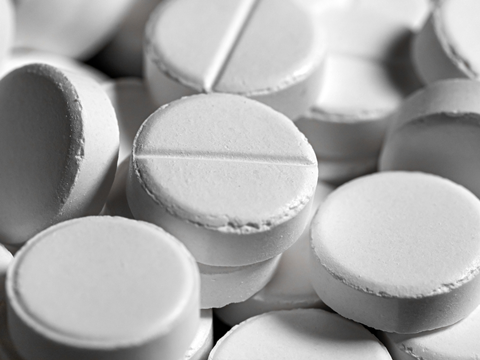
A study from the University of Edinburgh suggests that an E.coli bacterium could convert plastic waste into paracetamol with ‘virtually no’ carbon emissions.
Traditionally, paracetamol is made from ‘dwindling supplies’ of fossil fuels like crude oil. Thousands more tons of these fuels are used every year to power the factories that produce the drug, which is thought to form a ‘significant contribution’ to climate change.
In a bid to overcome this, a team of scientists from the University of Edinburgh’s Wallace Lab have focused on PET – which, despite existing recycling processes, is still thought to generate over 350 million tons of waste every year.
Using a genetically reprogrammed E.coli bacterium, the researchers have fermented industrial PET waste – a similar process to the fermentation used to brew beer – and converted a terephthalic acid molecule derived from PET into the active ingredient for paracetamol.
Apparently, the process takes less than 24 hours, and around 90% of the product created by reacting terephthalic acid is thought to be paracetamol. This technique can be carried out at room temperature and is thought to result in very few carbon emissions.
However, the team emphasizes that the process requires further development before it can be utilized on a commercial scale.
Lead author, UKRI Future Leaders fellow and chair of Chemical Biotechnology at the University of Edinburgh’s School of Biological Sciences, Professor Stephen Wallace, commented: “This work demonstrates that PET plastic isn’t just a waste or a material destined to become more plastic – it can be transformed by microorganisms into valuable new products, including those with potential for treating disease.”
“We are bringing in exceptional companies like AstraZeneca to work with Stephen and others at the University to translate these cutting-edge discoveries into world-changing innovations,” added Ian Hatch, head of Consultancy at Edinburgh Innovations.
“Engineering biology offers immense potential to disrupt our reliance on fossil fuels, build a circular economy and create sustainable chemicals and materials, and we would invite potential collaborators to get in touch.”
Funded by AstraZeneca and an EPSRC CASE award, the research was supported by Edinburgh Innovations and published in Nature Chemistry.
Similar innovations include the enzyme believed by Leipzig University to break down PET waste by 90% in 16 hours; two ‘plastic-eating’ enzymes thought to recycle plastic bottles into raw materials for further production, as publicized by Brunel University of London; and an enzyme utilized by King’s College London to degrade and recycle single-use bioplastics used in coffee cups and food containers.
In another development for engineering biology, the University of Edinburgh and Edinburgh Innovations have joined the Universities of Manchester, Nottingham, and Surrey, University College London, and Imperial College, among other partners, to found the new Carbon-Loop Sustainable Biomanufacturing Hub. The coalition intends to convert carbon-based industrial waste into materials and chemicals for use in various industries, including pharmaceuticals and cosmetics.
If you liked this story, you might also enjoy:
The ultimate guide to the Packaging and Packaging Waste Regulation in 2025
How are the top brands progressing on packaging sustainability?
Everything you need to know about global packaging sustainability regulation in 2025
The key to increasing the use of reusable packaging in supermarkets













No comments yet